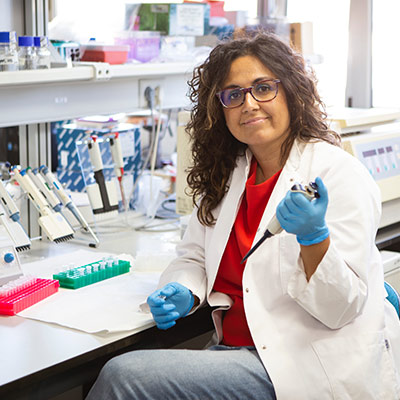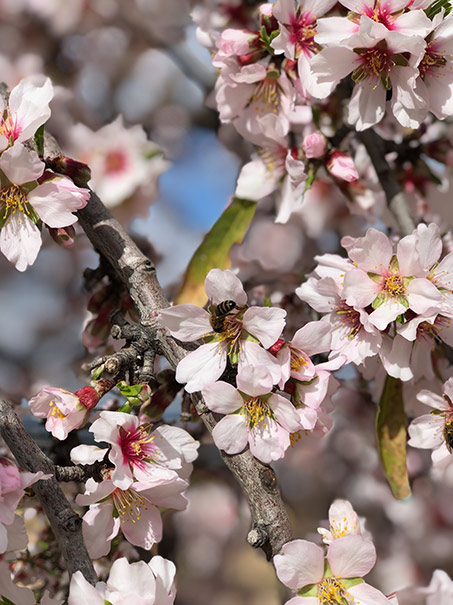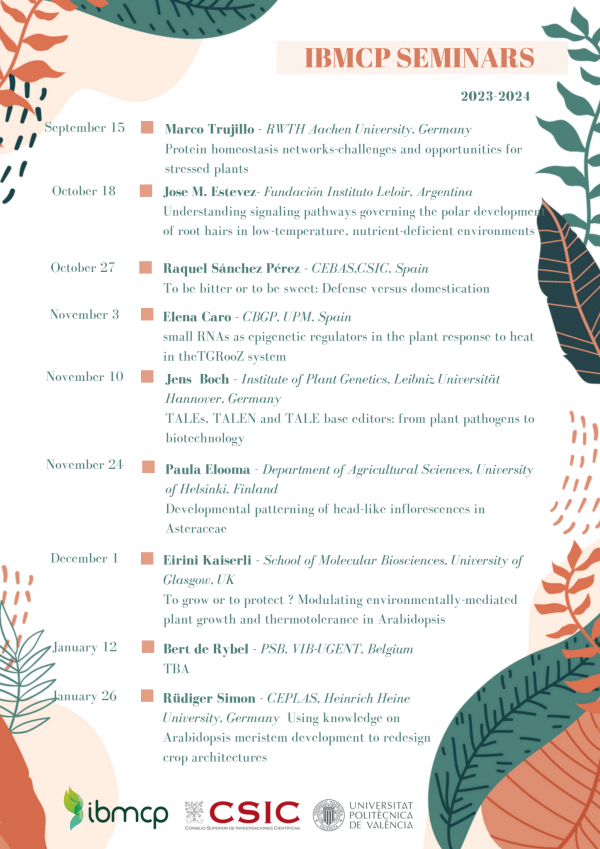
Raquel Sánchez Pérez
Senior Research Scientist
Campus Universitario de Espinardo, 30100 Murcia, Spain
Telf.: +34 968396200, ext. 6116
ResearchID: Z-2674-2019
Skype: raqsanchezperez
rsanchez@cebas.csic.es

PRESENTATION
The majority of the temperate fruit tree species belongs to the Rosaceae family, which encompasses about 100 different genera with more than 2000 species. Within this family, Prunus is one of the most important genera from an agronomical point of view producing more than 40 MMt worldwide of peaches and nectarines, apricots, almonds and sweet and sour cherries, cultivated in 1.7 MM ha.
Climate change is forcing not only fruit tree breeders to improve their efforts in developing new varieties that can be adapted and be economically competent in the new climate conditions, but also scientists to develop new and natural treatments that can compensate for the loss of chilling units that plants need to make an effective and yearly even fruit production.
It is known how important is the application of MAS in breeding programs as i.e. almond. In general, the global objective of a Prunus breeding program is obtaining new cultivars, self-compatible, of extra-late or extra-early blooming, productive, of high-quality fruit / kernels (i.e. sweet, firmness, low acidity etc.) with a chemical composition resulting in an excellent quality from the points of view sensorial, commercial, industrial and healthy. The knowledge of easy and suitable biotechnological tools is crucial for the development of molecular markers.
My research topic is the study of important agronomic traits within Prunus species to develop molecular markers to help breeders and growers in a climate change context. The main disadvantage of these species is their long juvenile period of three to four years, as occurs in almond, apricot, or even more in cherry etc.. These species only bloom once a year. Therefore, we have to wait two to three years to have statistical results when experiments are performed in reproductive organs such as flowers and fruits.
Due to these factors, the time necessary to obtain a new Prunus variety, e.g. almond, is approximately 10 years.
On the other hand, these plant species contain cyanogenic glucosides as prunasin and amygdalin that when cells are disrupted results in the release of hydrogen cyanide. We have recently elucidated the gene responsible for bitterness in almond by the sequencing of the almond genome, together with biochemistry and physiological studies. These results have been published in the prestigious scientific journal Science.
Projects participating:
- "Trip to the past to change the future of temperate fruits in a climate change scenario (AUSTRAL)", funded by BBVA Foundation (PI).
- "ALmond ADaptation In Novel environments: Multiscale Approach from Genome to function prediction [ALADINO MAGIC]" funded by MICINN (PI).
| LAST ADVERTISEMENTS |
 Seminario "To be bitter or to be sweet: Defense versus domestication"
Seminario "To be bitter or to be sweet: Defense versus domestication"
Fecha: 27-10-2023 Instituto de Biología Molecular y Celular de Plantas de Valencia (Ibmcp) Raquel Sánchez Pérez - CEBAS /CSIC / Spain
 The XVI Eucarpia Symposium on Fruit Breeding and Genetics . September 11–16, 2023, Dresden-Pillnitz
The XVI Eucarpia Symposium on Fruit Breeding and Genetics . September 11–16, 2023, Dresden-Pillnitz
The XVI Eucarpia Symposium on Fruit Breeding and Genetics will be held under the umbrella of Eucarpia and the International Society for Horticultural Sciences in Dresden-Pillnitz from 11 to 16 September 2023. This symposium brings together scientists working on topics related to fruit breeding and breeding research on temperate fruit crops and the conservation and use of fruit genetic resources.
 11th International Rosaceae Genomics Conference (March 2023 · Nelson, New Zealand · Organiser)
11th International Rosaceae Genomics Conference (March 2023 · Nelson, New Zealand · Organiser)
| LAST ARTICLES |
Special Issue "Prunus Dormancy and Breeding"
Publication date: 05-08-2022
Authors: Guest Editor: Dr. Jose A. Egea; Dra. Raquel Sánchez-Pérez ; Dr. David Ruiz.
Journal: Plants
DOI: https://www.mdpi.com/journal/plants/special_issues/S8R480HR2N#info
| LAST PRESS RELEASES |
27-04-2022 | Penta, Makako y Tardona, floración 2022 Barranda. Almendros de floración extra-tardía y ultra-tardía
